The above information was given at a press conference providing information on socio -economic issues in the city on the afternoon of July 24, organized by the Propaganda and Mass Mobilization Department of the Ho Chi Minh City Party Committee in coordination with the Ho Chi Minh City Department of Culture, Sports and Tourism.
Number of dengue fever cases increased
According to Mr. Nguyen Hong Tam, Director of the Ho Chi Minh City Center for Disease Control, the number of dengue fever cases increased by 158% compared to the same period last year.
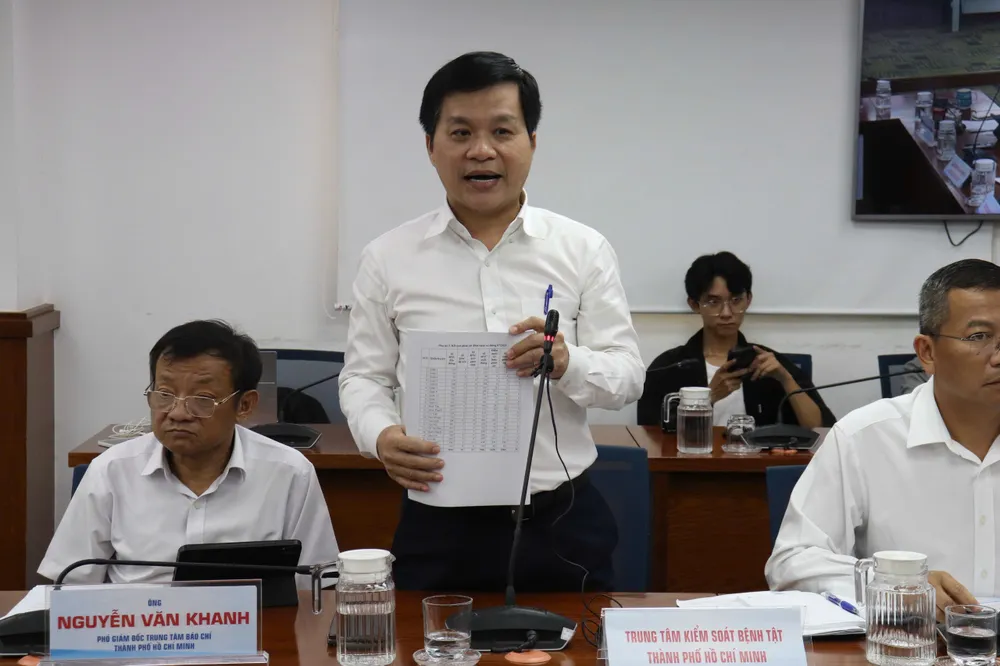
Faced with that situation, the health sector, in coordination with local authorities, has been vigorously implementing a campaign to kill mosquito larvae, clean up the environment, collect and clean up water containers at unmanaged dengue fever risk points in the area.
At the same time, we are determined not to miss any potential outbreaks that generate sources of disease-transmitting mosquitoes, "no larvae, no dengue fever"...
The Ho Chi Minh City Department of Health calls on units and each medical staff and all people to raise awareness of disease prevention, promote propaganda work, enhance early detection and timely treatment of disease cases.
promote the people to dismantle "tiger cages"
At the press conference, through a document, Ho Chi Minh City Police said that from July 10, 2025 to now, Ho Chi Minh City Police have coordinated with the Department of Construction and the People's Committees of localities to conduct a general review, inspection, and propaganda and guidance on fire prevention and fighting safety conditions "day and night" for apartments, old apartments, multi-apartment houses...
Through this, 65 old apartment buildings, multi-apartment houses (with 1,064 apartments) were mobilized and propagandized to dismantle or open a second escape route through the "tiger cage". Currently, 79 old apartment buildings, multi-apartment houses (with 1,457 apartments) have not yet dismantled or opened a second escape route through the "tiger cage".
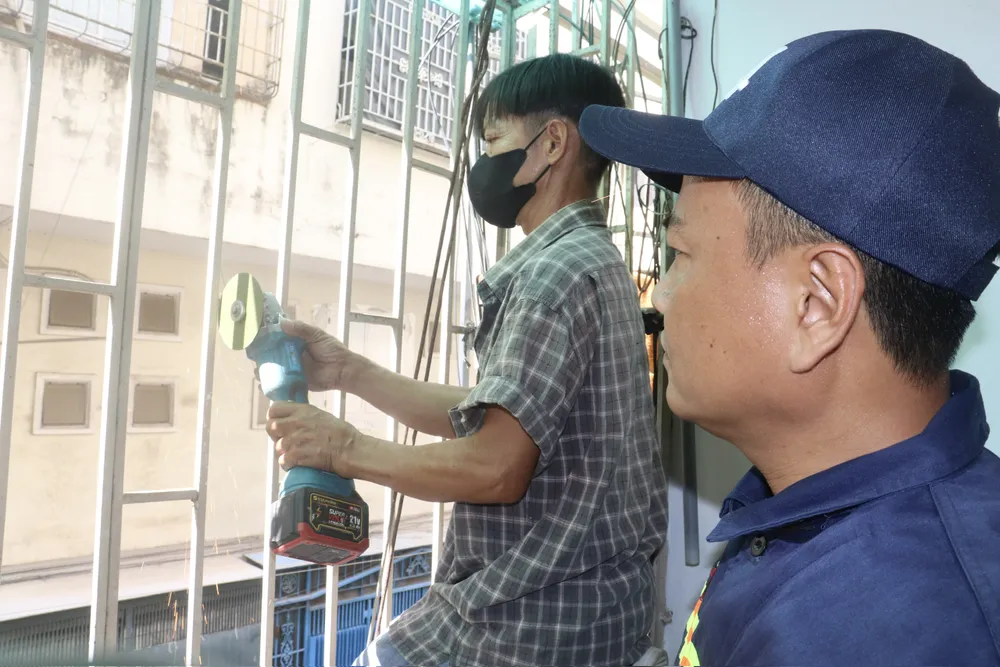
Ho Chi Minh City Police continue to coordinate with relevant units, requesting households installing "tiger cages" to commit to implementing safety conditions and complete dismantling or opening a second escape route through the "tiger cage" as soon as possible. The authorities will continue to monitor, urge, and inspect after the commitment period until the repair is completed.
Along with that, send forces to coordinate with local authorities to "go to every alley, knock on every door" to directly guide and support people.
According to the Ho Chi Minh City Police, the total number of boarding houses, multi-apartment houses, houses for rent, houses combined with production and business with high risk of fire and explosion in Ho Chi Minh City after the merger is 99,997. Of these, the number of establishments still violating fire prevention and fighting regulations is 18,347.
Up to now, Ho Chi Minh City still has 344 boarding houses, rental houses, multi-apartment houses, and houses combined with production and business that have not been repaired, still exist, and violate fire prevention and fighting regulations.
Ho Chi Minh City Police have advised the local authorities at the district level (formerly) to issue decisions to temporarily suspend operations according to Directive 19/CT-TTg of the Prime Minister .
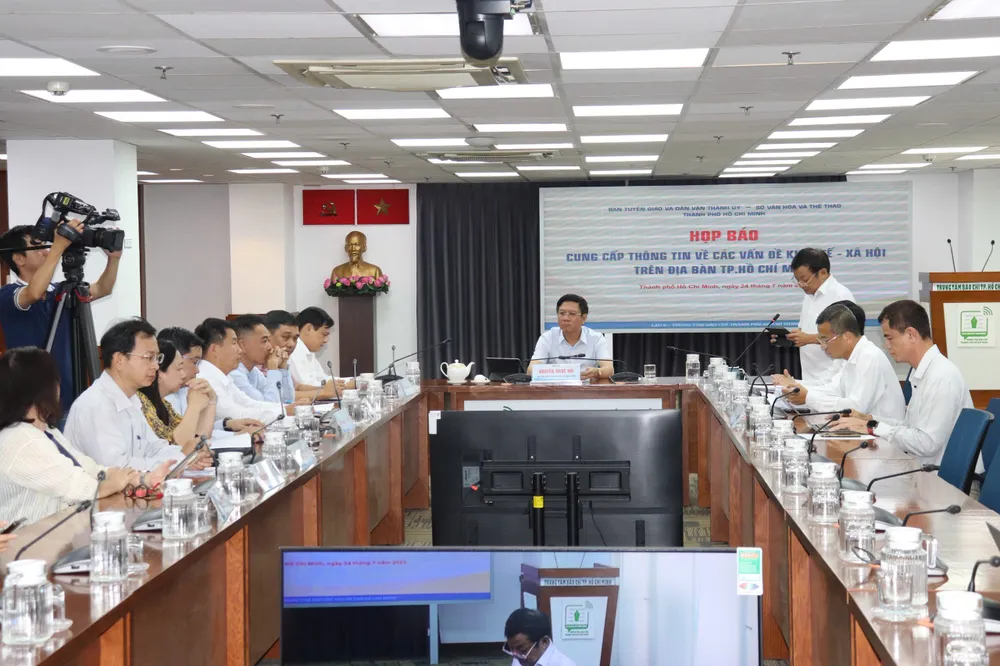
Handling of waste batteries from electric vehicles after conversion
Regarding the project to convert two-wheeled vehicles from gasoline to electric vehicles for technology drivers and delivery drivers, Mr. Le Thanh Hai, Director of the Center for Economic Application Consulting, Ho Chi Minh City Institute for Development Studies, said that the institute has researched a lot of information related to electric vehicle batteries.
According to Mr. Le Thanh Hai, Vietnam already has an electric vehicle battery factory in Ha Tinh, with a scale of more than 6,000 billion VND. This factory has signed a contract with a leading enterprise in the field of battery recycling.
With the signed contents including battery supply and recycling solutions, opening up the possibility of researching and investing in an electric vehicle battery recycling system in the future when electric vehicle batteries begin to reach the end of their life cycle. In case of no on-site investment, the partner unit signing with the factory will use battery processing technology in the Southeast Asian region or globally.
According to Mr. Le Thanh Hai, there are many rare metals in electric vehicle batteries, so recycling these materials is essential. This recovery and recycling depends on technology.
"Currently, battery recycling technology is quite developed, the ability to recover 90-95% of materials in batteries is very feasible, attracting investment interest from both the state and businesses," said Mr. Le Thanh Hai.
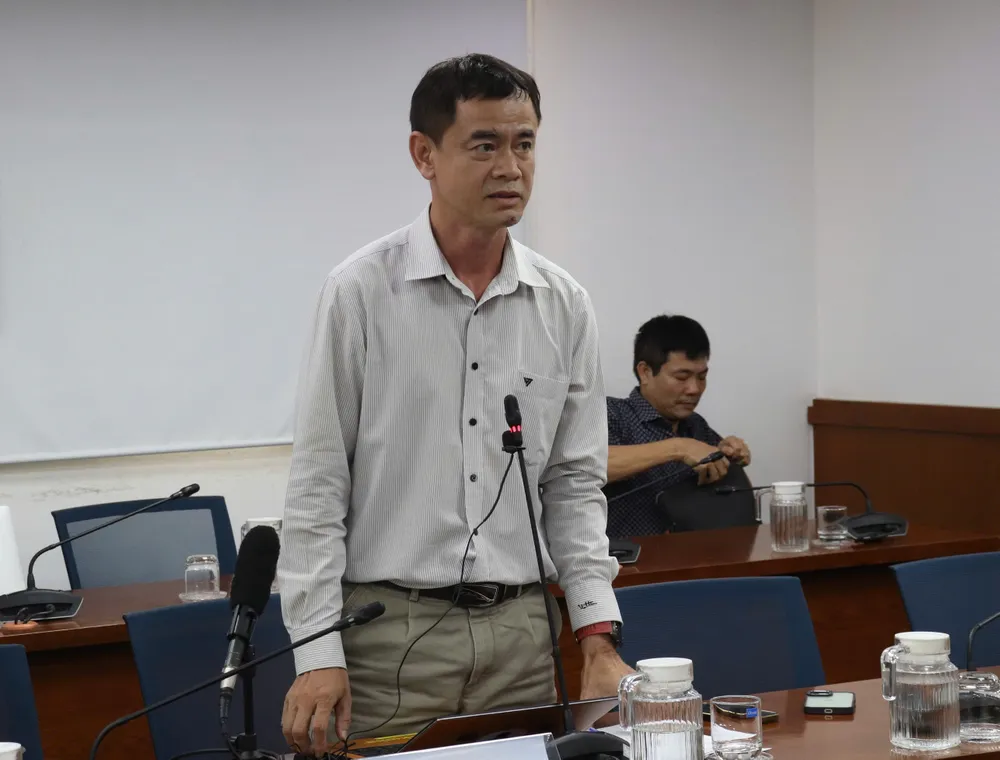
According to Mr. Le Thanh Hai, the solution to extend the life and second life of electric batteries is currently being focused on. The project also encourages and sets the goal of building a battery recycling center with a capacity of about 3,000 tons/year and the ability to recover 90-95% of precious metals from batteries.
If the factory meets certain standards, there will be support mechanisms such as preferential loans and using environmental protection funds for funding. According to the Law on Environmental Protection 2020, from January 1, 2024, battery manufacturers must pay recycling fees. However, if they have a recycling factory, the enterprise can owe this fee and be responsible for collecting and treating batteries after use. On the contrary, units that do not produce by themselves will have to pay environmental fees so that the state can use this source to support qualified recycling facilities.
The Ho Chi Minh City Institute for Development Studies hopes that in the next 10 years, a system of standard recycling factories will be formed, contributing to reducing pollution risks and developing green industrial values.
“We hope that the Department of Science and Technology will coordinate with the Department of Industry and Trade of Ho Chi Minh City to develop a detailed plan for the collection and treatment of old batteries and apply technical standards from the beginning, ensuring a strict process and a transparent and clear treatment process. At the same time, monitor the process of collecting old batteries to avoid uncontrolled discharge into the environment," Mr. Le Thanh Hai shared.
Source: https://www.sggp.org.vn/tphcm-ghi-nhan-hon-15500-ca-sot-xuat-huyet-tu-dau-nam-post805290.html




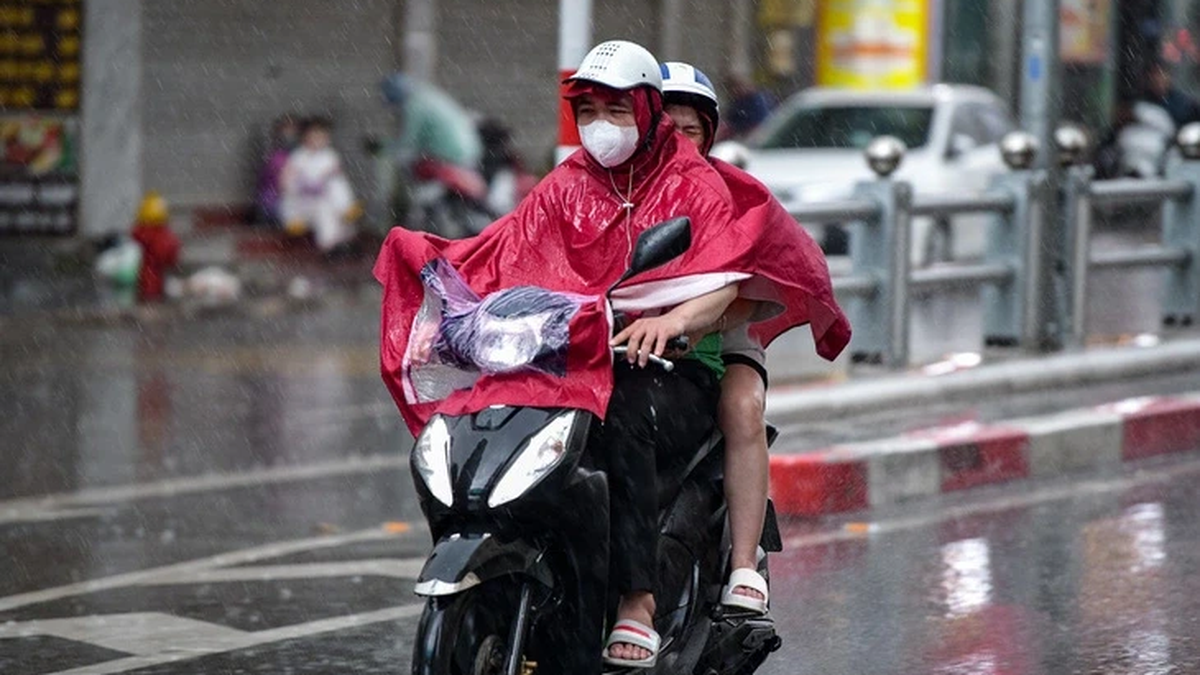

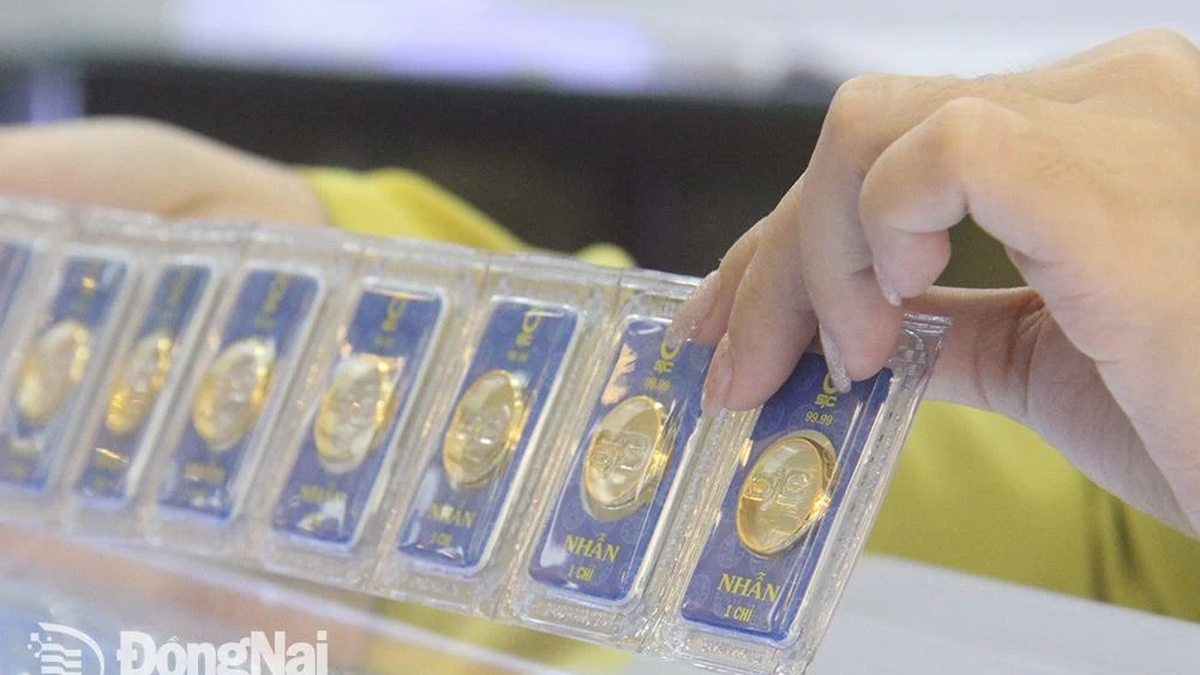




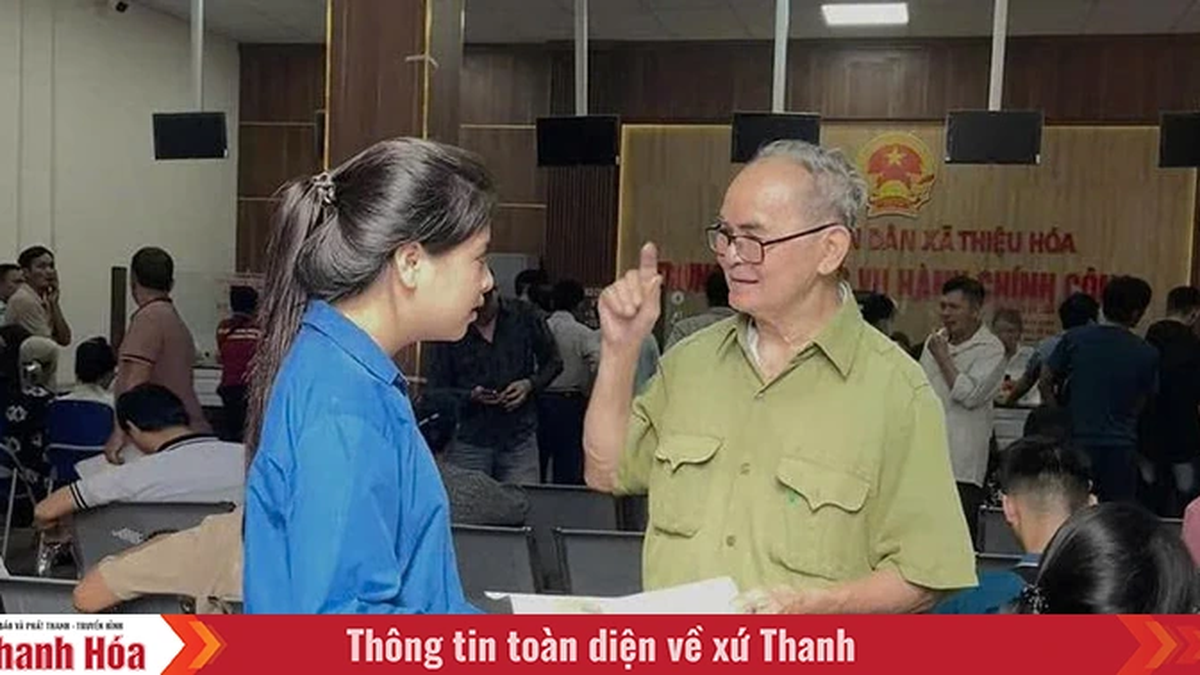



















![[Photo] Signing of cooperation between ministries, branches and localities of Vietnam and Senegal](https://vphoto.vietnam.vn/thumb/1200x675/vietnam/resource/IMAGE/2025/7/24/6147c654b0ae4f2793188e982e272651)








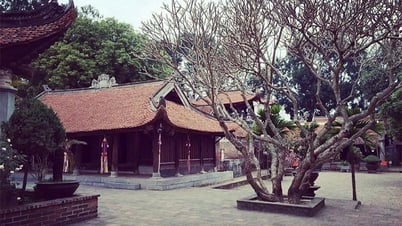





















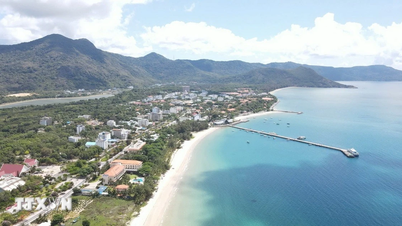


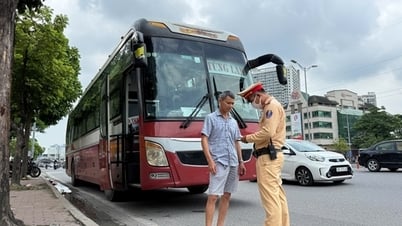



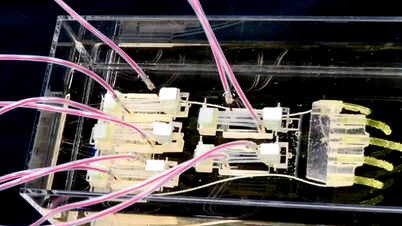
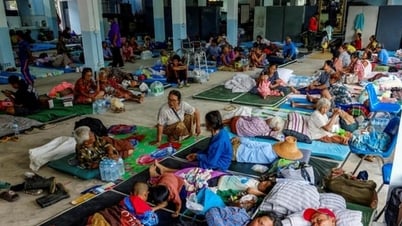



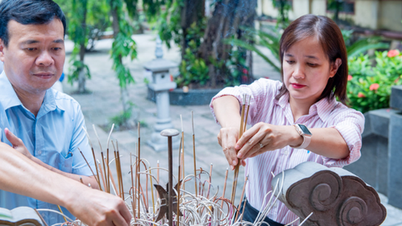
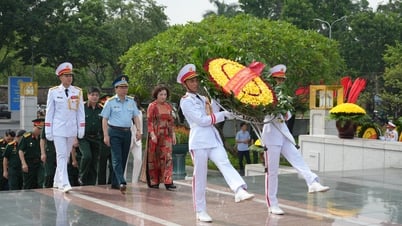

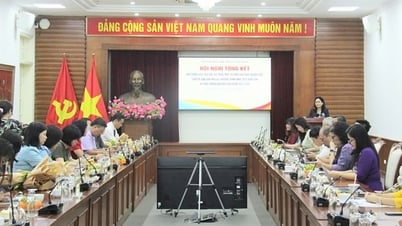

























Comment (0)